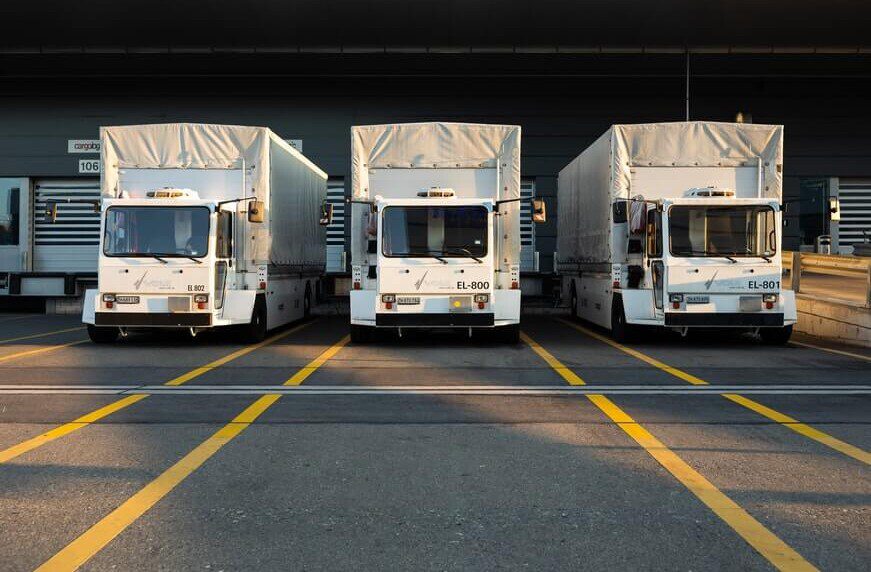
Trucks single-handedly transport billions of dollars worth of freight every year. Without trucking company businesses and the truck drivers that they employ, the economy would hit a dead end and come to a halt.
Then who wouldn’t want to get into a sought-after industry that is in high demand? Of course, like any other industry, it’s not that easy. There are a lot of things you need to consider.
6 Tips For Starting A Successful Trucking Company
Among the most important things is getting a USDOT number for whichever state you want to do business in. For instance, you would need a North Carolina DOT number for the state of North Carolina.
So, to make it easier for you here’s all you need to know before you begin a trucking company:
1. Acquire A Commercial Driver’s License
There is a lot of planning and preparation that goes into owning a transporting company. Most proprietors start as an owner-operator. Meaning, in addition to owning the company, they also partake in the daily operations.
But before you do any of that, along with having a USDOT number, you need to have a Commercial Driver License (CDL) to legally operate a truck and Motor Carrier operating authority number (MC Number) for starting a trucking company.
2. Create A Business Plan
To make this process as smooth as possible, you need to make sure you have a trucking business plan before starting your trucking company.
Organizing all of the affairs of your company like your sales, prices, marketing, partnerships, and fleet management is an essential part of your journey.
You can go for a more traditional plan format which would include management, organizations, marketing strategies, cost projection, and business accounts. Or you could choose a plan that’s more targeted to the client’s interests.
Either way, hiring a business plan advisor is also an option to make work easier for you.
3. Follow The Laws And Legal Regulations
Along with a Commercial Driver’s License, a USDOT number, and Operating Authority, there are a number of regulations and licenses laid out by the FMCSA you need to acquire before you start legally operating:
- Heavy Vehicle Use Tax – An annual tax charged by the Federal government on trucks that weigh over 55,000 Pounds. And collecting the fund for future highway programs.
- International Registration Plan (IRP) – To distribute the registration fees on the basis of the distance traveled in each state.
- Standard Carrier Alpha Code (SCAC) – This is a unique code that differentiates between multiple trucking companies and works as identification.
- International Fuel Tax Agreement (IFTA) – This is a legal agreement among the large numbers of U.S states and Canadian provinces. This agreement streamlines the reporting of fuel used for taxing.
4. Determine Your Operating Expenses
In most cases, starting a trucking company business can require an investment of as low as $10,000 and as high as $40,000.
In business, a company is considered successful as long as it is profitable. Now since a trucking business needs big payments and significant expenses, it is crucial to keep track of your operating costs.
This way, you can accurately determine which business decisions are more profitable, what works, and what doesn’t. By knowing these details, you will be able to install strategies and improve your business plans for more effectiveness.
5. Establish A Professional Back-Office
If you are starting off as a small carrier business or you want to become an owner-operator, an efficient and organized back office is necessary. This can make contact with clients, paperwork, and dealings much easier.
One option is doing this by yourself. This way, you can have complete control of what goes on in your company. But if the task proves too difficult, you can also hire a Factoring Company to handle all of the management for you.
6. Apply For Insurance
A great way to avoid having to deal with unexpected financial problems and costly burdens is Insurance. This will protect you from damages to your vehicle or car accidents.
Insurance can be a significant expense for a trucking company business. That is why it’s important to figure out which insurance products you should purchase according to your specific needs.
There are many types of insurance available for carriers:
- Primary Insurance For Liabilities – For any accidents that may have been caused by you. It can cost around $750,000 up to $1 million by some shippers.
- Cargo Insurance – To cover damage to your cargo. It can cost around $100,000
- Physical Damage – For any accidents where you are not at fault.
Conclusion:
A trucking company business has good growth potential. But knowledge is power. Hence, it is always better to research the legal issues and know the legal aspects of the transportations norms and your business route map in depth.
Read Also:































